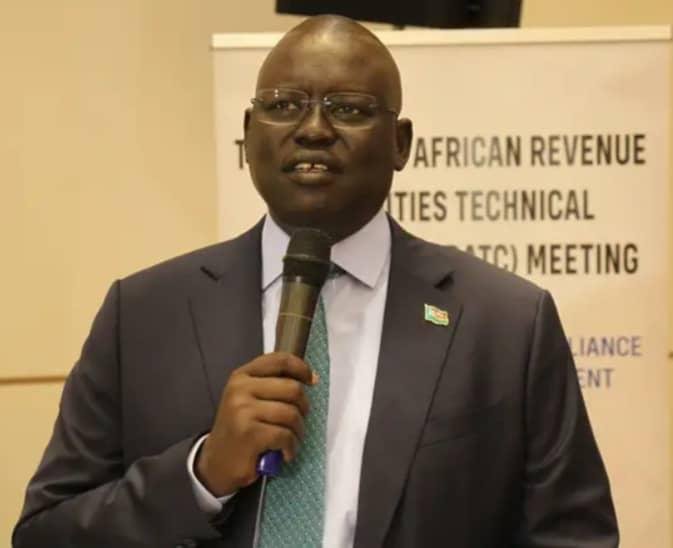The South Sudan Revenue Authority (SSRA) has “temporarily suspended” its ongoing taxpayer registration and zoning campaign in Juba following concerns raised by citizens and business owners.
This week the SSRA started zoning and registration of all taxpayers across the country with the hope of increasing the tax base of the country.
Addressing the media during the launch, Simon Akuei Deng, the Commissioner General of SSRA, said that the registration will boost the tax base in the country.
However, today in the cabinet meeting, Central Equatoria State, the host state to Juba City, opposed the idea and called for wider consultation.
In response to such complaints, the SSRA changes its tune and suspends the tax registration to give room for consultation.
Addressing journalists on Friday, Commissioner General Simon Akuei declared that the registration has been suspended to give room for consultations.
He added that the revenue authority will consult Juba City Council and other actors to make the order effective.
“This was a unilateral decision. The Council believes that consultations should have taken place between the Revenue Authority, the State Government, and the Juba City Council before implementing such a policy,” Akuei said.
The campaigns, which began on 1 July 2025, aimed to register all businesses, service providers, and self-employed individuals in the capital by dividing the city into ten administrative zones for door-to-door registration.
These include business leaders, civil society organizations, local authorities, and development partners.
The SSRA said the suspension reflects its commitment to transparency, accountability, and inclusive decision-making in the country’s tax system.
Speaking to the media after the meeting, Jacob Aligo Lo-Lado, the Acting Minister of Information, said after thorough deliberation, he emphasized the need for prior consultations involving the SSRA, the State Government, and the Juba City Council before such a policy is implemented.
The Council resolved to reject this unilateral decision and urges the South Sudan Revenue Authority to revoke it. Such actions violate Article 49 of the Transitional Constitution of South Sudan (2011), as amended, which calls for the respect of intergovernmental linkages,” said Aligo.
He added that the cabinet urged the SSRA to review its judgment and to respect the constitutional role of state governments in terms of tax collection.
